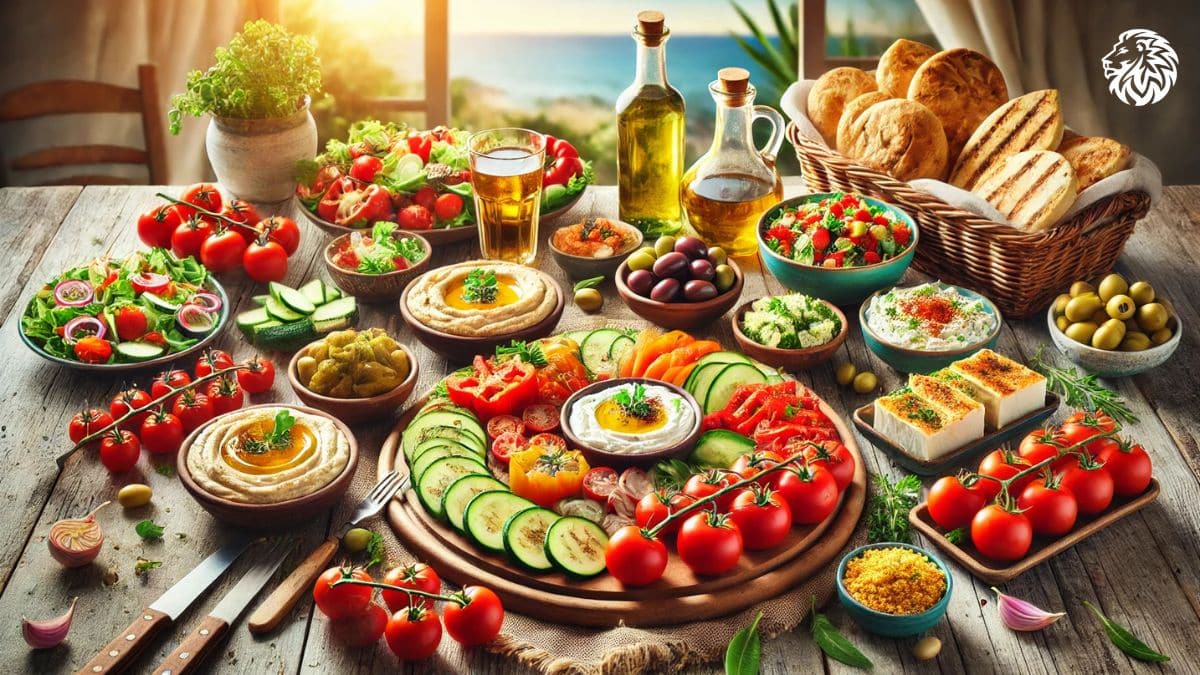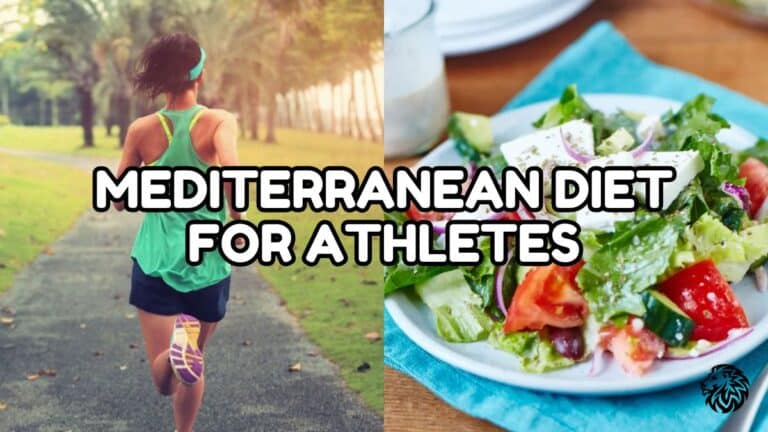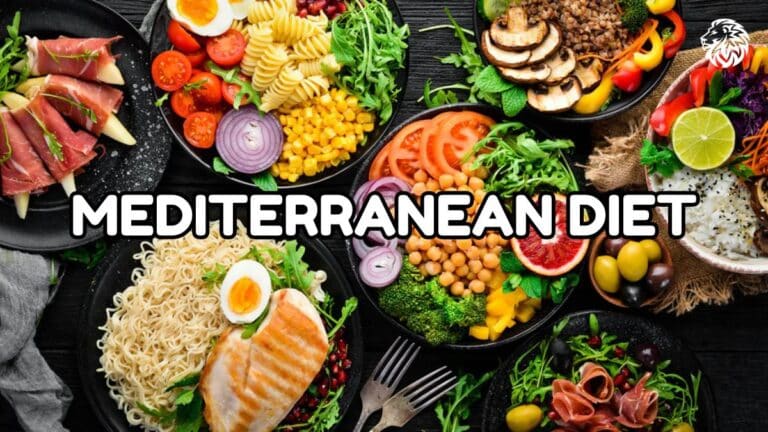There’s something timelessly alluring about Mediterranean living—the sun-drenched coasts, leisurely meals, and an eating pattern that’s both indulgent and wholesome. But for vegetarians, adapting this iconic diet might seem like an impossible feat, given its reputation for seafood and lean meats. Enter the Mediterranean Diet for Vegetarians: a refreshing, plant-focused approach that celebrates the vibrant flavors and health benefits of the Mediterranean, minus the meat. Think lush olive oil, hearty legumes, zesty herbs, and an abundance of fruits and vegetables—this isn’t just a diet, it’s a feast for the senses. Let’s dive into how this vegetarian-friendly twist on a classic can transform your plate and your well-being.
Understanding the Mediterranean Diet
Principles of the Diet
You’ve probably heard about the Mediterranean Diet and its superstar reputation for healthy living. It’s all about balance, with a side of plant goodness. Imagine piling your plate with veggies, fruit, whole grains, and nuts—all drizzled with a splash of extra virgin olive oil that gives your body a bit of sunshine in fat form (Cleveland Clinic).
Here’s what you’ll be munching on:
- Vegetables and Fruits: Think of your local farmer’s market haul.
- Whole Grains: Stuff like barley, oats, and whole wheat bread.
- Legumes and Nuts: Beans, lentils, chickpeas, plus a handful of almonds and walnuts.
- Olive Oil: The star of the show, replacing the usual fats.
- Herbs and Spices: Mother nature’s way to keep you from reaching for the salt shaker.
- Limited Dairy and Meat: Small servings of cheese, yogurt, fish, and poultry—because less is more.
Curious about the nitty-gritty of these foods? Check our mediterranean diet food list.
Health Benefits of the Diet
The Mediterranean Diet does more than just tantalize your taste buds; it’s got some serious health perks too (Mayo Clinic). Research has tipped its hat to this diet for tackling a host of pesky chronic diseases:
- Cardiovascular Health: Those good fats in olive oil and nuts work their magic by keeping your cholesterol in check, which gives your heart some good vibes and lessens the chance of heart trouble (Cleveland Clinic).
- Lower Risk of Chronic Conditions: The plant-heavy menu helps manage blood sugar and keep type 2 diabetes at bay.
- Anti-inflammatory Perks: With foods that’ll cool any fiery inflammation, this diet might just ease those pesky aches.
| Health Benefit | Key Contributors |
|---|---|
| Reduced Heart Disease | Unsaturated fats, whole grains, nuts |
| Improved Cholesterol | Extra virgin olive oil, nuts |
| Diabetes Management | Low-glycemic vegetables, legumes |
| Anti-inflammatory Effects | Consuming berries, leafy greens, olive oil, and nuts |
Nodding along with the benefits? You’ll find delving into the Mediterranean way of eating to be rewarding for your health. For the details on fighting off specific conditions, swing by our mediterranean diet benefits.
For those who love a plan, you might like our mediterranean diet meal plan for a laid-back guide on meals and portions.
Adapting the Mediterranean Diet for Vegetarians
So, you’re eyeing the Mediterranean diet for weight loss but want to keep it strictly veggie? Good news, you’re absolutely in for a treat. Giving the Mediterranean diet a veggie twist is not only doable but packed with health perks. Let’s see how you can jump on this plant-powered path with gusto—focusing on plant goodies and the right nutrients.
Plant-Powered Protein Picks
Protein is like the unsung hero of your muscles, immunities, skin magic, and bones. Let’s get into some plant-powered choices that vibe well with the Mediterranean groove:
| Protein Goodie | Protein per 100g (g) |
|---|---|
| Lentils | 9 |
| Chickpeas | 19 |
| Tofu | 8 |
| Quinoa | 4 |
| Almonds | 21 |
| Greek Yogurt | 10 |
Throw these goodies into your meals to keep your protein game strong. Sprinkle some legumes, nuts, seeds, and dairy into each plate, and you’re all set. Hungry for more food ideas? Peek at our mediterranean diet recipes for some tasty inspo.
Get Those Essential Nutrients
Rocking a vegetarian Mediterranean diet means you gotta keep an eye on key nutrients—it’s all about feeling your best. Here’s what you need in your nutritional toolkit:
- Iron: You’ll find it in lentils, tofu, spinach, and those fortified cereals. Pair these with vitamin C picks like oranges to boost iron intake.
- Zinc: Beans, nuts, seeds, and dairy are your go-to. This one’s crucial for keeping your immune system in work mode.
- Calcium: Snag it from those leafy greens, fortified plant drinks, and dairy. Your bones will love you for it.
- Vitamin B12: Mostly chilling in animal foods, but you can score some from fortified plant options or supplements.
- Omega-3 Fatty Acids: Your heart’s best pals are found in flaxseeds, chia seeds, and walnuts.
| Nutrient | Veggie Picks |
|---|---|
| Iron | Lentils, Spinach, Fortified Cereals |
| Zinc | Chickpeas, Nuts, Seeds |
| Calcium | Leafy Greens, Fortified Plant Milk |
| Vitamin B12 | Fortified Cereals, Supplements |
| Omega-3 | Flaxseeds, Chia Seeds, Walnuts |
Mix and match these nutritional superstars for a vibrant, balanced diet. If you’re curious for more options, don’t forget to dive into our mediterranean diet food list for a treasure trove of ideas.
Adapting your Mediterranean menu to go veggie means getting creative with meals and zeroing in on those nutrients. For hacks and strategies, swing by our mediterranean diet meal prep section. Bon appétit on your tastier, veggie-tastic adventure!
Comparing Mediterranean and Vegetarian Diets
Weight Loss Effects
You know, when it comes to shedding a few pounds, the Mediterranean and vegetarian diets bring their own flavors to the table. They’re both pretty solid when it comes to healthy eating, but their impact on weight can vary.
One study says folks sticking to a low-fat vegan diet, kinda like going vegetarian, dropped about 13.2 pounds over 16 weeks. Meanwhile, those on the Mediterranean diet didn’t see much of a change in their weight (Healthline).
| Diet Type | Average Weight Loss (16 weeks) |
|---|---|
| Low-fat Vegan | 13.2 pounds |
| Mediterranean Diet | Not much change |
Looks like if losing weight is your main gig, the vegetarian route might just give you a bit more bang for your buck.
If you’re itching to try a Mediterranean menu geared towards weight loss, check out our piece on mediterranean diet for weight loss.
Heart Health Benefits
Now, let’s chat about how these diets hold up in the heart department. They’ve both been put under the microscope quite a bit for keeping the ticker happy.
Back in the swinging ’60s, researchers noticed fewer heart-related deaths in spots like Greece and Italy compared to the U.S. and northern Europe. More recent digs tied the Mediterranean diet to better heart health markers like lower cholesterol and blood pressure (Mayo Clinic).
On the flip side, rocking a vegetarian lifestyle has also been linked to cutting down the risks of high blood pressure, metabolic issues, type 2 diabetes, and heart disease. And consuming meat—especially the red and processed kinds—has shown ties to higher heart disease and cancer risks (Harvard Health Publishing).
Here’s a quick glance at what both diets bring to the heart-health table:
| Health Benefit | Mediterranean Diet | Vegetarian Diet |
|---|---|---|
| Reduced High Cholesterol | Check | Check |
| Reduced High Blood Pressure | Check | Check |
| Lower Risk of Heart Disease | Check | Check |
| Reduced Risk of Cancer | Check | Check |
In the grand scheme of things, both are great pals to your heart. If you’re cooking up something Mediterranean for heart health, swing by our articles on mediterranean diet dinner recipes and mediterranean diet and heart health.
For personalized tips to kick-start your Mediterranean diet journey, don’t miss our guide on how to start the mediterranean diet.
Nutritional Considerations on a Vegetarian Mediterranean Diet
Protein Intake
Getting enough protein on a vegetarian Mediterranean diet doesn’t have to feel like a chore. It’s all about finding the right plant-based foods to keep those muscles happy and bones solid.
Try to pack at least one protein player into each meal. A nifty goal is to snag around 15-20 grams of protein for every plate you fill, according to Fully Mediterranean. Here’s a quick peek at some plant powerhouses and their protein punch:
| Food | Protein per serving |
|---|---|
| Lentils (1 cup) | 18g |
| Chickpeas (1 cup) | 14.5g |
| Quinoa (1 cup) | 8g |
| Greek Yogurt (1 cup) | 10g |
| Tofu (3.5 oz) | 8g |
| Almonds (1/4 cup) | 6g |
| Chia Seeds (2 tbsp) | 4g |
Mixing up these protein-packed goodies in your meals means you’re saying goodbye to meat and fish without missing a beat. For more meal ideas, hop over to our mediterranean diet recipes and mediterranean diet lunch recipes.
Iron and Zinc Sources
Iron and zinc—those sneaky critters that can sometimes play hard to get on a veggie diet—are big shots when it comes to keeping you in tip-top shape. Iron hauls oxygen around and pumps up your energy, while zinc is your immune system’s best bud and keeps wounds in check.
Meet some iron and zinc friends from the plant kingdom:
| Food | Iron per serving | Zinc per serving |
|---|---|---|
| Lentils (1 cup) | 6.6mg | 2.5mg |
| Chickpeas (1 cup) | 4.7mg | 2.2mg |
| Pumpkin Seeds (1 oz) | 2.3mg | 2.2mg |
| Spinach (1 cup, cooked) | 6.4mg | 0.7mg |
| Tofu (3.5 oz) | 3.4mg | 1.0mg |
| Cashews (1 oz) | 1.7mg | 1.6mg |
| Quinoa (1 cup) | 2.8mg | 1.1mg |
Crank up the iron from plants by buddying up with vitamin C champs like bell peppers, tomatoes, and citrus—making non-heme iron (the kind from plants) way more available.
For even more tasty tips on getting the most out of your diet, check out our articles on mediterranean diet benefits and mediterranean diet for weight loss.
And hey, a quick chat with a healthcare pro or a dietitian can make sure you’re hitting all your nutritional marks. For more on that, pop over to consulting with a dietitian.
Practical Tips for a Vegetarian Mediterranean Diet
Choosing Healthy Fats
Getting the right fats is a big deal when you’re hanging with the vegetarian Mediterranean crowd. Extra virgin olive oil (EVOO) is the star here. Why? It’s packed with healthy fats and antioxidants, unlike the ‘meh’ regular olive oil. This powerhouse oil helps guard your cells, keeps your ticker and brain ticking, and even chills out inflammation (Cleveland Clinic).
Here’s a little cheat sheet to break it down:
| Olive Oil Type | Healthy Fats (%) | Antioxidants | Recommended Use |
|---|---|---|---|
| Extra Virgin Olive Oil | 73 | High | Use daily |
| Regular Olive Oil | 55 | Low | Use occasionally |
Other fatty good stuff worth throwing into the mix:
- Nuts and Seeds: These guys are champs, bursting with omega-3s and protein. Grab some almonds, walnuts, chia seeds, and flaxseeds.
- Avocados: They’re not just for toast! These are full of monounsaturated fats, great for knocking down bad cholesterol. Perfect for any Mediterranean meal (mediterranean diet recipes).
- Olives: Can’t skip the olives! They’re a Mediterranean diet staple, offering healthy fats and a nice twist to your salads and more.
Consulting with a Dietitian
Going vegetarian with a Mediterranean twist means you’ve gotta plan like a pro to hit all those nutrition marks. Teaming up with a registered dietitian is like having a personal GPS for your dietary map, helping you get there without a hitch.
- Nutrient Planning: A dietitian can clue you in on snagging enough plant-based protein, and loading up on iron and zinc goodies from stuff like legumes, nuts, seeds, and dairy (Fully Mediterranean).
- Meal Planning: They can hook you up with a killer mediterranean meal plan chock full of fruits, veggies, whole grains, and those killer fats.
- Consultation Check-ins: Keep it cool with regular check-ins to make sure you’re crushing your goals and tweak things if needed.
For more deets on protein packing and nailing your food pairings for complete proteins, take a peek at our rundown on nutritional must-knows on a vegetarian Mediterranean diet.
Stick to these tips and with a dietitian riding shotgun, you’ll cruise through the mediterranean diet for weight loss journey while feasting on meals that are as tasty as they are diverse.
Final Thoughts on Vegetarian Mediterranean Diet
Chatting with Your Doctor
Thinking about diving into the Mediterranean diet for vegetarians can do wonders for your health, but before you start, have a chat with your doc. A healthcare pro can break down the good stuff in the diet and make sure you’re hitting all the nutritional marks. Plus, they can tailor the advice to suit your personal health story and dietary quirks. For more info, check out the Cleveland Clinic and Mayo Clinic.
Getting Involved with Others
Having your crew support your healthy eating changes is super important. Look for people who are also into the Mediterranean diet for newbies or vegetarians. Swapping stories and tips can give you a boost and some fresh ideas. You might find nearby meet-ups, digital hangouts, or social media groups that dig the same things you do. It’s way easier to stay on track when you have folks cheering you on.
Jumping into cooking classes or workshops centered on Mediterranean diet recipes is another fun way to get rolling. Not only do you sharpen your cooking chops, but you also get to mingle with fellow food enthusiasts. Grab some tips and tricks from Harvard Health and other trusted sources to step up your game and feel great about sticking to the diet.
Final Thoughts: Mediterranean Diet for Vegetarians
The Mediterranean Diet for Vegetarians is more than just a way of eating—it’s a celebration of wholesome, delicious food that nourishes your body and soul. With its focus on fresh veggies, hearty grains, and healthy fats, it proves that healthy eating can be full of flavor and satisfaction. Whether you’re looking to boost your health, stay energized, or simply enjoy a more sustainable way of living, this approach has something for everyone. So go ahead—embrace the vibrant, plant-powered Mediterranean lifestyle and savor every bite along the way.
Resources and Internal Links
Here’s a list of handy links just for you:
- Mediterranean diet meal plan
- Mediterranean diet food list
- Mediterranean diet dinner recipes
- Mediterranean diet and diabetes
- Mediterranean diet snacks
- How to start the Mediterranean diet
- Mediterranean diet before and after
These links are your go-to guides for making smart choices and finding practical advice as you embrace the Mediterranean diet as a vegetarian.







